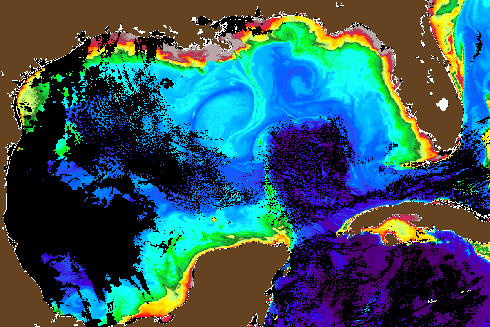News
Article Listing
Viewing items with Category: All Categories, Year: All Years

USF and partners launch innovative accelerator program to grow the marine economy
The Continuum, a blue-tech accelerator program, is designed to promote the commercialization of blue-tech solutions, drive advancements in ocean resilience, reduce negative environmental impacts, and stimulate economic growth for the country’s marine economy.
December 10, 2024News, Resiliency News

Deep-sea discovery shines light on life in the twilight zone
A GEOTRACES expedition in the Pacific Ocean revealed low levels of iron in the ocean’s twilight zone. A paper detailing the unexpected findings was published this week in Nature.
September 19, 2024News

An “invasive” marine organism has become an economic resource in the eastern Mediterranean
A recent paper on foraminifera in the eastern Mediterranean offers a unique perspective on the complex interactions between humans and marine environments.
September 12, 2024News

Research shines at the Fall 2024 CMS Faculty Seminar Series
An annual tradition, the faculty seminar kicks off the Fall semester and is a chance for faculty members to present their latest research to the College.
September 9, 2024Blogs and Perspectives, News

Estuaries in South Florida are warming faster than the Gulf of Mexico and global ocean
Using satellite data, CMS researchers found that sea surface temperatures in four estuaries in South Florida have risen faster than sea surface temperatures globally and in the Gulf of Mexico.
August 6, 2024News

USF-trained shipwreck hunter makes another major discovery
Using a technique known as side-scan sonar, a team led by David Mearns and The Royal Canadian Geographical Society found Shackleton’s last ship off the coast of Newfoundland, Canada.
June 17, 2024News

How GEOTRACES helped unlock secrets of marine trace elements
GEOTRACES has been an international effort to better understand the role of marine trace elements and determine their distributions in the ocean.
June 12, 2024News, Publication Highlights

The Ocean Circulation Lab braces for a busy hurricane season
The Ocean Circulation Lab maintains a pair of high-resolution circulation models that can be used to forecast water levels days before hurricane landfall.
June 5, 2024Florida Flood Hub, News

Advancing ocean science with “trailblazing” PACE mission
NASA’s PACE mission brings state-of-the-art technology to satellite Earth observations.
April 26, 2024News

Sea urchin killer spreads to new species, region
A deadly parasite that decimated sea urchin populations in the Caribbean has spread to coral reefs in the Sea of Oman and threatens populations around the world.
March 25, 2024News

Frank Müller-Karger, Distinguished University Professor, recognized for pioneering scientific research and leadership
From whale research to satellite-based remote sensing, Frank Müller-Karger has earned recognition as a Distinguished University Professor at the University of South Florida.

CMS celebrates 40 years of Graduate Student Symposiums
The breadth of topics covered during the 2024 Graduate Student Symposium illustrates the impressive scope of science conducted at the College of Marine Science.
February 12, 2024Blogs and Perspectives